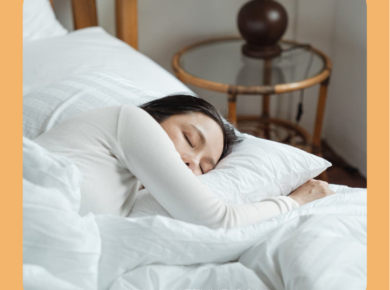Understanding the Importance of Quality Sleep
In the hustle and bustle of modern life, it’s easy to overlook the importance of quality sleep. However, sleep is not just a luxury; it’s a fundamental pillar of overall health and well-being. Adequate sleep is crucial for various bodily functions, including restoration, repair, and cognitive function.
Why is Sleep Important for Overall Health?
Sleep plays a vital role in maintaining physical health, mental health, and quality of life. During sleep, the body undergoes essential processes such as cellular repair, hormone regulation, and immune system strengthening. Chronic sleep deprivation has been linked to an increased risk of various health problems, including obesity, diabetes, cardiovascular disease, and mental health disorders.
How Much Sleep Do You Need?
The amount of sleep needed varies depending on age, lifestyle, and individual differences. However, most adults require between 7 to 9 hours of sleep per night to feel fully rested and function optimally during the day. It’s essential to prioritize sleep and ensure you’re getting enough rest to support your overall health and well-being.
Common Causes of Poor Sleep
Several factors can contribute to poor sleep quality, including stress, poor sleep habits, environmental factors, medical conditions, and lifestyle choices. Identifying and addressing these factors is crucial for improving sleep quality and achieving restful nights.
Tip 1: Establish a Consistent Sleep Schedule
Creating a consistent sleep schedule involves going to bed and waking up at the same time every day, even on weekends. This practice helps regulate your body’s internal clock, known as the circadian rhythm, which plays a significant role in determining sleep-wake cycles.
What is a Sleep Schedule?
A sleep schedule, also known as a sleep routine or sleep pattern, refers to the regularity and timing of your sleep habits. By following a consistent sleep schedule, you can train your body to anticipate sleep at specific times, making it easier to fall asleep and wake up feeling refreshed.
How Does a Consistent Sleep Schedule Improve Sleep Quality?
Maintaining a consistent sleep schedule helps synchronize your body’s internal clock with the natural day-night cycle, optimizing the quality of your sleep. When your body knows when to expect sleep, it can prepare by initiating biological processes that promote rest and relaxation, leading to more restorative sleep.
Tips for Creating and Maintaining a Sleep Schedule
- Choose a bedtime and wake-up time that allows for 7 to 9 hours of sleep per night, based on your individual needs.
- Stick to your sleep schedule even on weekends and holidays to reinforce your body’s internal clock.
- Avoid napping late in the day, as it can interfere with your ability to fall asleep at night.
- Create a relaxing bedtime routine to signal to your body that it’s time to wind down and prepare for sleep.
Establishing a consistent sleep schedule is a simple yet powerful strategy for improving sleep quality and overall well-being.
Tip 2: Create a Relaxing Bedtime Routine
A bedtime routine consists of a series of relaxing activities performed before bed to help signal to your body that it’s time to wind down and prepare for sleep. Incorporating a bedtime routine into your nightly rituals can promote relaxation and improve sleep quality.
What is a Bedtime Routine?
A bedtime routine is a set of calming activities or rituals that you perform each night before going to bed. These activities can include reading, gentle stretching, meditation, taking a warm bath, or listening to soothing music. The goal is to create a peaceful and stress-free transition from wakefulness to sleep.
Why is a Bedtime Routine Important for Sleep?
Engaging in a bedtime routine helps reduce stress and anxiety, which are common barriers to falling asleep. By dedicating time to relax and unwind before bed, you can signal to your body that it’s time to shift into sleep mode, making it easier to fall asleep quickly and stay asleep throughout the night.
Ideas for Relaxing Bedtime Rituals
- Reading: Choose a calming book or magazine to read before bed to help quiet your mind and distract from any worries or stressors.
- Mindfulness Meditation: Practice mindfulness meditation techniques to promote relaxation and quiet the chatter of your mind.
- Yoga or Stretching: Engage in gentle stretching or yoga poses to release tension from your muscles and promote physical relaxation.
- Aromatherapy: Use essential oils such as lavender or chamomile in a diffuser or apply them to your skin to create a soothing atmosphere conducive to sleep.
Incorporating a relaxing bedtime routine into your nightly rituals can help prepare your body and mind for a restful night’s sleep.
Tip 3: Optimize Your Sleep Environment
Creating an ideal sleep environment is essential for promoting restful and uninterrupted sleep. Your sleep environment encompasses factors such as lighting, noise, temperature, and comfort, all of which can significantly impact your ability to fall asleep and stay asleep throughout the night.
How Does Your Environment Impact Sleep Quality?
Your sleep environment plays a crucial role in regulating your body’s internal clock and promoting relaxation. Factors such as excessive light exposure, loud noises, uncomfortable bedding, and extreme temperatures can disrupt sleep and lead to poor sleep quality.
Tips for Creating an Ideal Sleep Environment
- Keep your bedroom dark: Use blackout curtains or shades to block out light from street lamps or electronic devices that emit light.
- Minimize noise: Use earplugs or white noise machines to drown out disruptive sounds and create a quiet sleeping environment.
- Control the temperature: Keep your bedroom cool, ideally between 60 to 67 degrees Fahrenheit (15 to 20 degrees Celsius), to promote optimal sleep conditions.
- Invest in a comfortable mattress and pillows: Choose a mattress and pillows that provide adequate support and comfort for your sleeping position and preferences.
Common Sleep Environment Mistakes to Avoid
- Using electronic devices before bed: The blue light emitted by smartphones, tablets, and computers can interfere with your body’s natural sleep-wake cycle.
- Sleeping in a cluttered or disorganized bedroom: A messy bedroom can create feelings of stress and anxiety, making it difficult to relax and fall asleep.
- Keeping pets in the bedroom: Pets can disrupt sleep by snoring, moving around, or demanding attention during the night.
By optimizing your sleep environment and eliminating potential sleep disruptors, you can create the ideal conditions for a restful night’s sleep.
Tip 4: Practice Healthy Sleep Habits
In addition to establishing a consistent sleep schedule and creating a relaxing bedtime routine, adopting healthy sleep habits is essential for improving sleep quality and overall well-being. Healthy sleep habits encompass a range of behaviors and practices that promote restful and rejuvenating sleep.
What are Healthy Sleep Habits?
Healthy sleep habits, also known as sleep hygiene, refer to practices and behaviors that support good sleep quality and quantity. These habits include maintaining a regular sleep schedule, creating a conducive sleep environment, and practicing relaxation techniques before bedtime.
How Can Lifestyle Choices Affect Sleep?
Lifestyle choices such as diet, exercise, caffeine intake, and screen time can significantly impact sleep quality. Consuming caffeinated beverages late in the day, engaging in vigorous exercise close to bedtime, or consuming heavy meals before bed can interfere with your ability to fall asleep and stay asleep throughout the night.
Tips for Developing and Maintaining Healthy Sleep Habits
- Limit caffeine and alcohol intake: Avoid consuming caffeine and alcohol close to bedtime, as they can disrupt sleep patterns and lead to restless nights.
- Establish a regular exercise routine: Engage in regular physical activity, but try to avoid exercising too close to bedtime, as it can stimulate your body and make it difficult to fall asleep.
- Practice relaxation techniques: Incorporate relaxation techniques such as deep breathing, progressive muscle relaxation, or guided imagery into your bedtime routine to help calm your mind and body before sleep.
- Limit screen time before bed: Reduce exposure to electronic devices such as smartphones, tablets, and computers before bedtime, as the blue light emitted by these devices can interfere with the production of melatonin, a hormone that regulates sleep-wake cycles.
By incorporating these healthy sleep habits into your daily routine, you can improve sleep quality and wake up feeling refreshed and revitalized each morning.
Tip 5: Consider Sleep Aids and Supplements
While establishing a consistent sleep schedule, creating a relaxing bedtime routine, optimizing your sleep environment, and practicing healthy sleep habits are effective strategies for improving sleep quality, some individuals may benefit from additional support in the form of sleep aids and supplements.
What Are Sleep Aids and Supplements?
Sleep aids and supplements are products designed to promote relaxation and improve sleep quality. These can include herbal remedies, over-the-counter medications, and prescription sleep aids. Additionally, certain dietary supplements such as melatonin, magnesium, and valerian root are popular options for addressing sleep issues.
Types of Sleep Aids and Supplements
- Melatonin: A hormone that regulates sleep-wake cycles, melatonin supplements are commonly used to promote sleep onset and regulate sleep patterns.
- Valerian Root: An herbal supplement with sedative properties, valerian root is often used to improve sleep quality and reduce insomnia symptoms.
- Magnesium: This essential mineral plays a role in regulating neurotransmitters involved in sleep and relaxation, making magnesium supplements a popular choice for promoting restful sleep.
Safety Considerations and Consultation with a Healthcare Professional
While sleep aids and supplements can be helpful for some individuals, it’s essential to use them cautiously and consult with a healthcare professional before starting any new regimen. Certain sleep aids and supplements may interact with medications or have potential side effects, especially when used long-term or in combination with other substances.
Before incorporating sleep aids or supplements into your routine, consider the following:
- Consult with your healthcare provider: Discuss your sleep issues and treatment options with a qualified healthcare professional who can provide personalized recommendations based on your individual needs and medical history.
- Research potential side effects and interactions: Educate yourself about the potential risks and benefits of different sleep aids and supplements, and be aware of any contraindications or interactions with medications you may be taking.
- Start with low doses: If you decide to try a sleep aid or supplement, start with a low dose and monitor your response carefully. It’s essential to proceed cautiously and listen to your body’s cues.
By considering sleep aids and supplements under the guidance of a healthcare professional, you can explore additional options for improving sleep quality and overall well-being.
Achieving a Restful Night’s Sleep
In today’s fast-paced world, achieving a restful night’s sleep is more important than ever for maintaining optimal health and well-being. By implementing the five proven tips discussed in this article, you can create the ideal conditions for a restorative and rejuvenating sleep experience.
Recap of the 5 Proven Tips
- Establish a Consistent Sleep Schedule: By going to bed and waking up at the same time every day, you can regulate your body’s internal clock and improve sleep quality.
- Create a Relaxing Bedtime Routine: Engaging in calming activities before bed helps signal to your body that it’s time to wind down and prepare for sleep.
- Optimize Your Sleep Environment: Designing a sleep-friendly environment with minimal light, noise, and distractions promotes restful and uninterrupted sleep.
- Practice Healthy Sleep Habits: Adopting behaviors such as limiting caffeine intake, exercising regularly, and practicing relaxation techniques contributes to better sleep quality.
- Consider Sleep Aids and Supplements: Under the guidance of a healthcare professional, explore the potential benefits of sleep aids and supplements for improving sleep quality.
Importance of Prioritizing Quality Sleep
Quality sleep is essential for overall health and well-being, impacting various aspects of physical and mental health. By prioritizing sleep and implementing strategies to improve sleep quality, you can enhance your mood, cognitive function, immune system, and overall quality of life.
Encouragement for Implementation and Consistency
While incorporating these tips into your routine may require effort and consistency, the benefits of achieving restful sleep are well worth it. Remember that improving sleep quality is a journey, and small changes can make a significant difference over time. Stay committed to prioritizing your sleep, and you’ll reap the rewards of waking up feeling refreshed, revitalized, and ready to tackle the day ahead.






